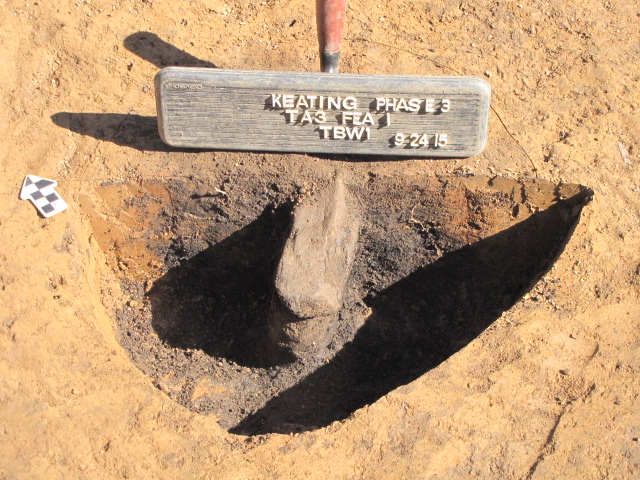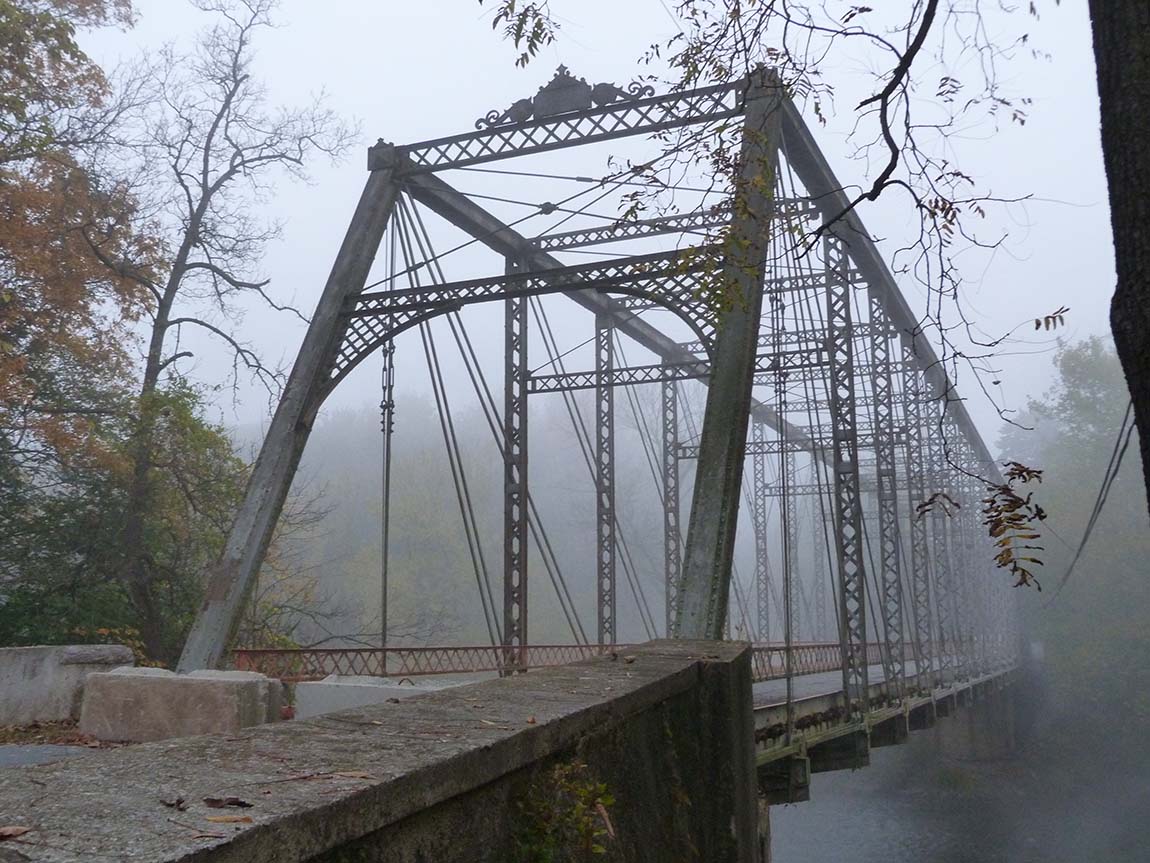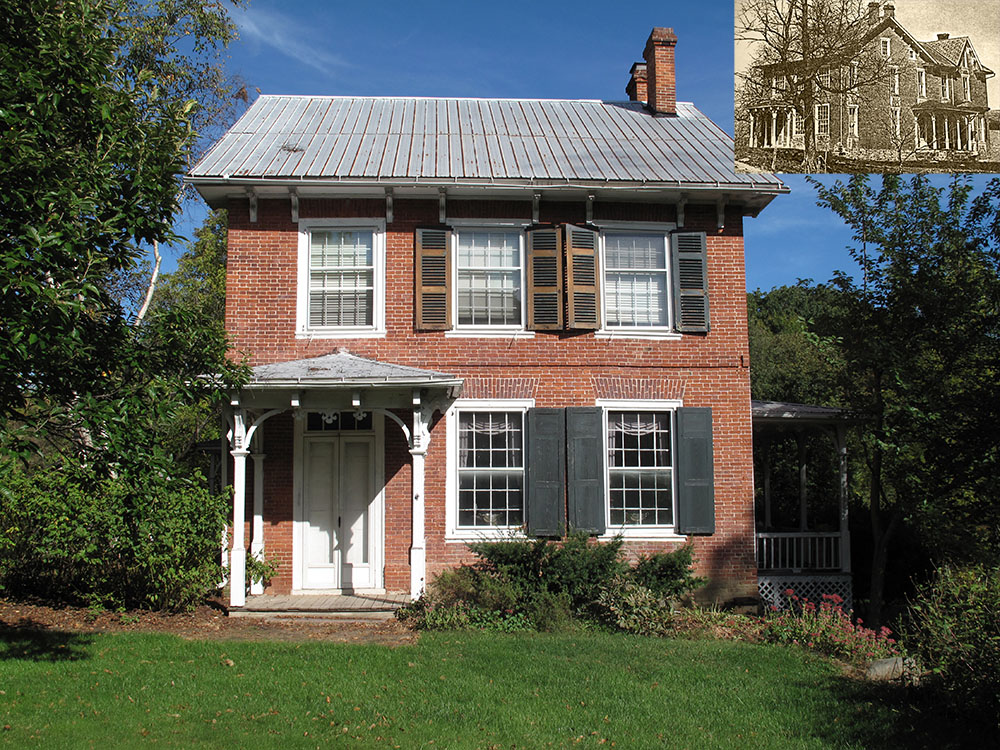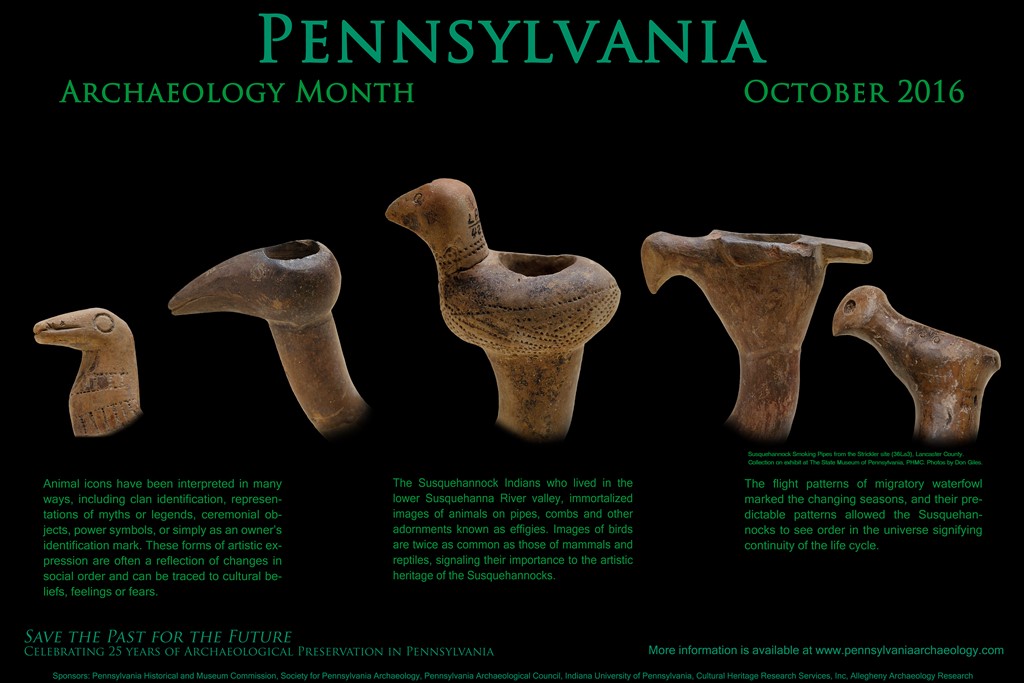Last month, we introduced you to the Keating Site (36MC0127) located along the Potato Creek north of Smethport in McKean County, Pennsylvania in this interesting blog post. Read on to learn about more cool finds at this prehistoric site!

Blog of the Pennsylvania State Historic Preservation Office

Last month, we introduced you to the Keating Site (36MC0127) located along the Potato Creek north of Smethport in McKean County, Pennsylvania in this interesting blog post. Read on to learn about more cool finds at this prehistoric site!

Located along the Potato Creek north of Smethport in McKean County, Pennsylvania, the Keating site (36MC0127) is a prehistoric site with a long history of occupation covering a period of time from approximately 7000 B.C. to A.D. 1500. The site is eligible for listing in the National Register of Historic Places important because of its potential to provide more information about how people lived in this area during the Early Archaic to Late Woodland. This post, the first of two, explores some of the more interesting findings from this dig. Continue reading

In June 2016, I was hired as the Transportation Special Initiatives Coordinator in the Pennsylvania State Historic Preservation Office (SHPO). This new position was created through a special funding agreement with the Pennsylvania Department of Transportation (PennDOT) and was developed to assist them in marketing the state’s historic metal truss bridges. My position has evolved over the last 9 months and I see my purpose as helping both PennDOT and the SHPO preserve the remaining population of historic metal truss bridges by either marketing them for an adaptive reuse at a new location or helping to develop and implement a management plan to rehabilitate these bridges as part of the transportation system. Continue reading

It’s almost spring in Washington, D.C. and for us here at the PA SHPO it doesn’t mean cherry blossoms – it means Advocacy Week! Next week, Pennsylvania’s Preservation Delegation heads south to talk about one of our favorite topics (historic preservation!) in a fresh new way (with videos!) and we are ready to go.

Potters Mills? Story Maps? What are these things? This week’s post from guest contributor Charles Richmond will answer these burning questions and talk about this creative way to use 21st century technology to connect people to place and preservation.
This time of year is all about traditions, so I’m keeping one of ours here at the PA Historic Preservation blog: the Year in Review. Its a good time to reflect on all the great preservation in Pennsylvania in 2016. There is so much to choose from that it was hard to come up with my top 5! Once you read through my list, leave a comment and tell me what is on your Top 5 list.
In May of 2015, Governor Tom Wolf appointed 48 people to serve on the newly-created Governor’s Pipeline Infrastructure Task Force, which was charged with creating a set of recommendations for responsibly guiding the extraction and transportation of natural gas in Pennsylvania. The purpose of the recommendations was to suggest best practices that would avoid or lessen environmental, community and cultural resources impacts and address safety issues. Below is the who, what, when, where, and how of this task force, the PA SHPO’s role, and the group’s accomplishments.

In 2016, the preservation community has been looking back over the past 50 years to reflect upon the legacy of the National Historic Preservation Act of 1966. The legislation laid the groundwork for the tools and strategies of preservation. For Pennsylvania, 2016 also marks the beginning of a multi-year planning process to look forward over the next five years (and beyond) through the development of a new Statewide Historic Preservation Plan. I had the chance to look around at the recent American Planning Association – Pennsylvania Chapter (APA-PA for short) conference and it got me thinking about how preservation is connecting to the bigger planning world.

Sorry, guys, no October SHPO Shout-Out this month – but I have a good reason! Continue reading

There’s a scene in the 1960 classic, The Time Machine, where Rod Taylor escapes the imminent nuclear war by throwing his machine fast into the future. Quickly, the ground rises all around him and for what appears to be an eternity, he is sitting there isolated from the outside world. At that moment, as we watch him shivering, we wonder with him what is going on above ground. An archaeologist would empathize with Rod Taylor at that moment, not because he has put himself into a tight spot, but because Taylor’s experience is the experience of all artifacts in the ground. They are part of the world, then they are no longer part of the world, having disappeared beneath the earth.
© 2025 Pennsylvania Historic Preservation
Theme by Anders Noren — Up ↑
Recent Comments